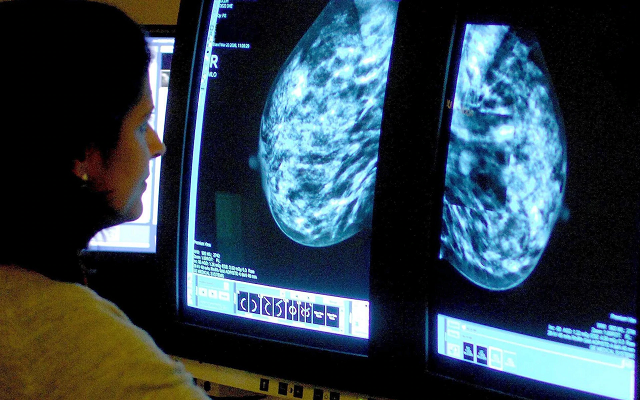An artificial intelligence programme has been developed which can detect breast cancer from mammograms better than experts, a study found.
A new study has found that an AI system developed by Google Health can identify cancer in breast screening mammograms with fewer false positives, and fewer false negatives than radiologists.
The programme was developed in collaboration with DeepMind, Cancer Research UK Imperial Centre, Northwestern University, and Royal Surrey County Hospital.
Researchers said that the AI model was trained and tuned on anonymised mammograms from more than 76,000 women in the UK and more than 15,000 women in the US to see if it could learn to spot signs of breast cancer.
It was then tested on a separate data selection of more than 25,000 women in the UK and over 3,000 women in the US.
The study found that the AI system produced a 1.2% reduction in false positives, where a mammogram is reported as abnormal when no cancer is present, and 2.7% reduction of false negatives, when the scan is reported as normal even though breast cancer is present, in the UK.
This compared to a 5.7% reduction in false positives and 9.4% reduction of false negatives in the USA.
The team said that the latest study, published in the journal Nature on Wednesday, “set the stage” for the model to potentially support radiologists performing breast cancer screenings.
Dominic King, UK Lead at Google Health, said: “Our team is really proud of these research findings, which suggest that we are on our way to developing a tool that can help clinicians spot breast cancer with greater accuracy.
“Further testing, clinical validation and regulatory approvals are required before this could start making a difference for patients, but we’re committed to working with our partners towards this goal.”
Screening mammography, the most widely used breast cancer screening tool, is an X-ray taken of the breast from multiple views and the images are then analysed by at least one radiologist in the US or two in the UK.
Breast cancer is the most common cancer in the UK – with around 55,000 people diagnosed every year, according to Cancer Research UK.
The charity said one in seven women in the UK develops breast cancer during their lifetime, and it more common in older women.
“Embracing technology like this may help improve the way we diagnose cancer in the years to come.
“Screening helps diagnose breast cancer at an early stage, when treatment is more likely to be successful, ensuring more people survive the disease. But it also has harms such as diagnosing cancers that would never have gone on to cause any problems and missing some cancers.
“This is still early-stage research, but it shows how AI could improve breast cancer screening and ease the pressure off the NHS. And while further clinical studies are needed to see how and if this technology could work in practice, the initial results are promising.”
Source: The Telegraph












